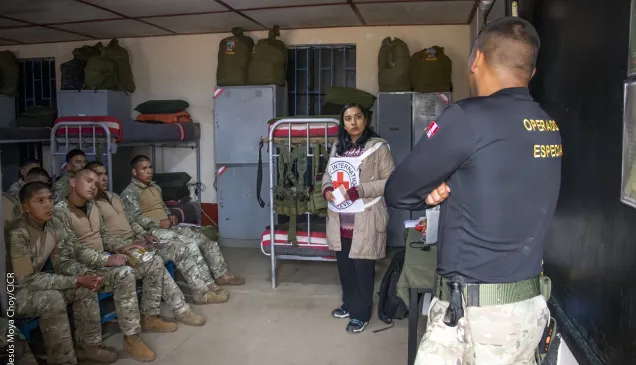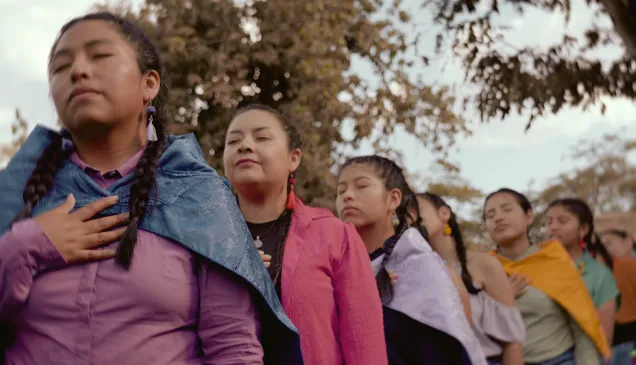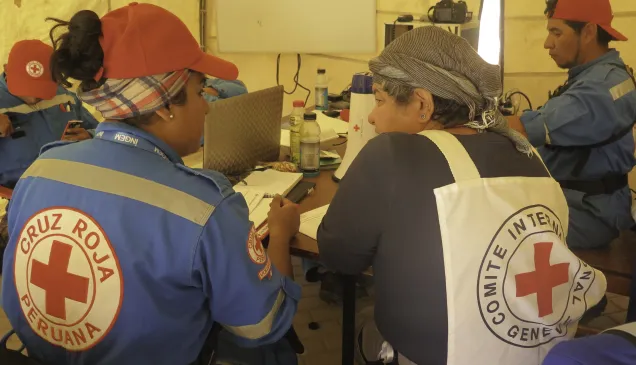Peru: First aid for VRAEM communities affected by violence
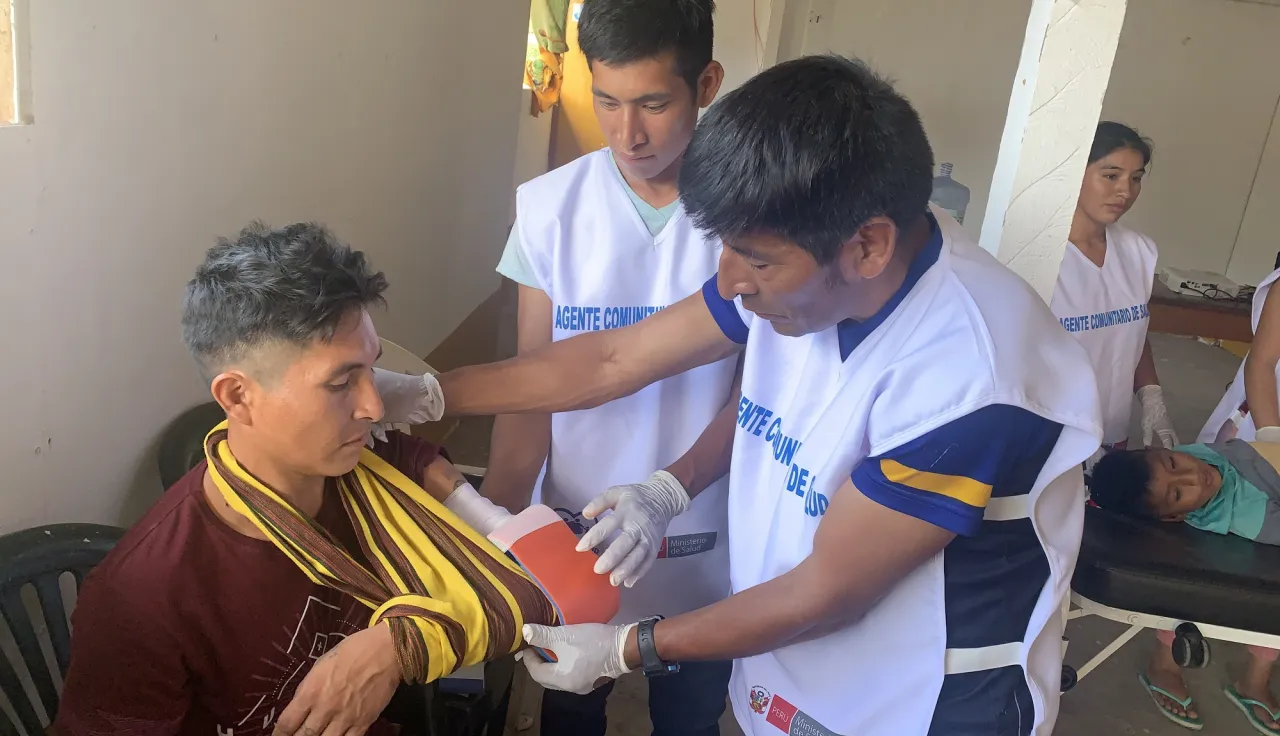
The communities who live in the valley of the rivers Apurímac, Ene and Mantaro in Peru face serious difficulties in accessing health care.
The VRAEM, as it is known in Spanish, is a geographical area of mountains and jungle that straddles five departments – Apurímac, Ayacucho, Cusco, Huancavelica y Junín – of which 37 districts have been in a state of emergency for more than a decade. Armed groups fight it out in the valley, leaving the local communities caught in the middle, with direct consequences for their mental health, emotional well-being and quality of life.
Health-care centres are few and far between in the valley, and the terrain makes it very hard for health workers to reach local people for them to get basic health care. If there is a centre, it is usually made up of just one or two workers – not nearly enough to provide all the medical services needed – and staff turnover is high. In the most remote, most hard-to-reach areas, locals rely on community health workers, that is volunteers from the community who have been trained to provide first aid and basic primary health care.
To better meet the health needs of people living in the VRAEM, the International Committee of the Red Cross (ICRC) is working to strengthen the capacities of the community health workers, in close coordination with the area's health workers.
To do this, we are providing technical and logistical support for the various capacity-strengthening initiatives put forward by the local health authority that are designed to help the community workers. For example, they attend workshops on issues such as how to treat medical emergencies and endemic diseases, how to provide maternal and infant health care, and what to do in the event of natural disasters or armed violence.
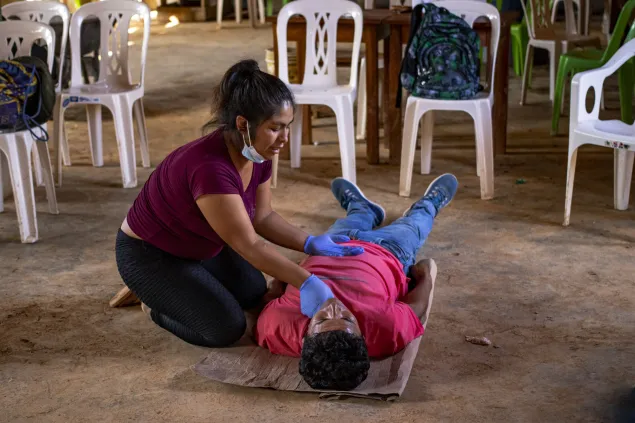
We focus on strengthening their knowledge of basic first aid, and on how to recognize people's vital signs; give CPR; transport wounded and injured people; stem bleeding; treat burns, bites, stings, cuts and bruises; and apply bandages. We also provide basic training on diseases that may affect the most vulnerable people, such as pregnant women, children and the elderly.
The health-care system is made stronger by coordinating with local communities and health-care providers, who are supported by community health workers in the jungle and mountains and who adapt their work in line with the needs of each community.
The ICRC takes a respectful stance with regard to improving health-care services in the valley. We adapt our tools to the particular needs of people in the area, always working hand in hand with the local authorities and communities. Our support for the initiatives enables local people in an area racked by conflict to develop ways of mitigating some of the negative impacts of the violence and to become self-sufficient and more resilient over time.
The ICRC maintains confidential dialogue with the authorities and armed actors, raises awareness of health workers' rights and obligations, and promotes respect for international humanitarian law in order to protect the impartial delivery of health care and ensure sick and wounded people are treated humanely.

